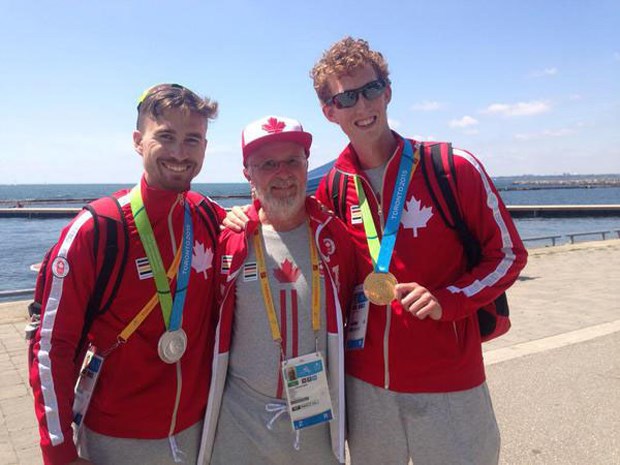The phrase “it takes a village” has never applied to amateur athletes more than it does today.
Professional sports teams have long been fitted with every “ist” imaginable — physiologists, nutritionists, biomechanists, to name a few, while amateur athletes fended for themselves, trying to wrangle up their own ragtag support team. Luckily for us, over the years resources have become available through organizations such as Canadian Sport Institute and, especially here in Richmond, the Olympic Oval. With the ever-shrinking margins for success in sport, these resources have become a crucial part of Canada’s mounting attacks for global sport dominance.
Personally, I have taken full advantage, and surrounded myself with, a star line-up of researchers, therapists and coaches.
While their direct impact varies, each one of them has played a role in helping shape me into the athlete I am today. Whether it is keeping me healthy, strong, focused or improving my technique, these are the people to whom I owe a tremendous deal of gratitude this holiday season.
Gerry Dragomir: My one and only race walking coach. As I have improved as an athlete, he has improved as a coach through the past 14 years, culminating in him being named the 2014 Canadian Coach of the Year across all sports. Having been there every step of the way, Gerry and I now find ourselves less in a coach-athlete role and more in a mentor-mentee role, as we bounce ideas off one another.
Marilou Lamy: My physiotherapist for the past six years. Marilou has successfully kept me injury free. Knowing my body better than I know it myself, she’s mainly prevented injuries from occurring by addressing strength imbalances. When any niggles do creep in, she knows exactly how to address them.
Devon Goldstein: Having Devon come on board in the last year to guide my strength program has been a huge addition. I credit a good portion of my 50km breakthrough to my improved strength, a direct result of Devon’s programming and watchful eye.
Kirsten Barnes: As my sports psychologist, Kirsten’s role has been to get me mentally prepared and help train my focus as well as guide my goal setting. Her professional skills are multi-faceted, and her personal experience as an Olympic gold medalist has allowed her to relate completely to the highs and lows of the day-to-day grind.
Other members of my team, whom I unfortunately can’t go into detail about but are nonetheless valuable, include my massage therapist Garfield Crooks, my biomechanist Nikki Reiter, my nutritionist and physiologist Trent Stellingwerff and my doctor Linda Thyer.
Obviously, through my time in sport there have been countless others who have helped me get here from coaches, to teachers, to those who believed in me when no one else did. I would be remiss not to mention a couple of them. Top of that list are my parents, who fall into each of those categories. Without their financial and moral support, I would be nowhere! And the last person that receives special mention is Chris Dalhuisen. From coach to close friend, Chris is one of my biggest supporters. Had he not stepped in to coach the Kajaks when I was running, I doubt I’d still be in the sport.
It is clear that making it to the Olympics isn’t a solo affair. So, the next time you see an athlete atop the medal dais, think about all the people it took to help get them there.
Happy Holidays.



